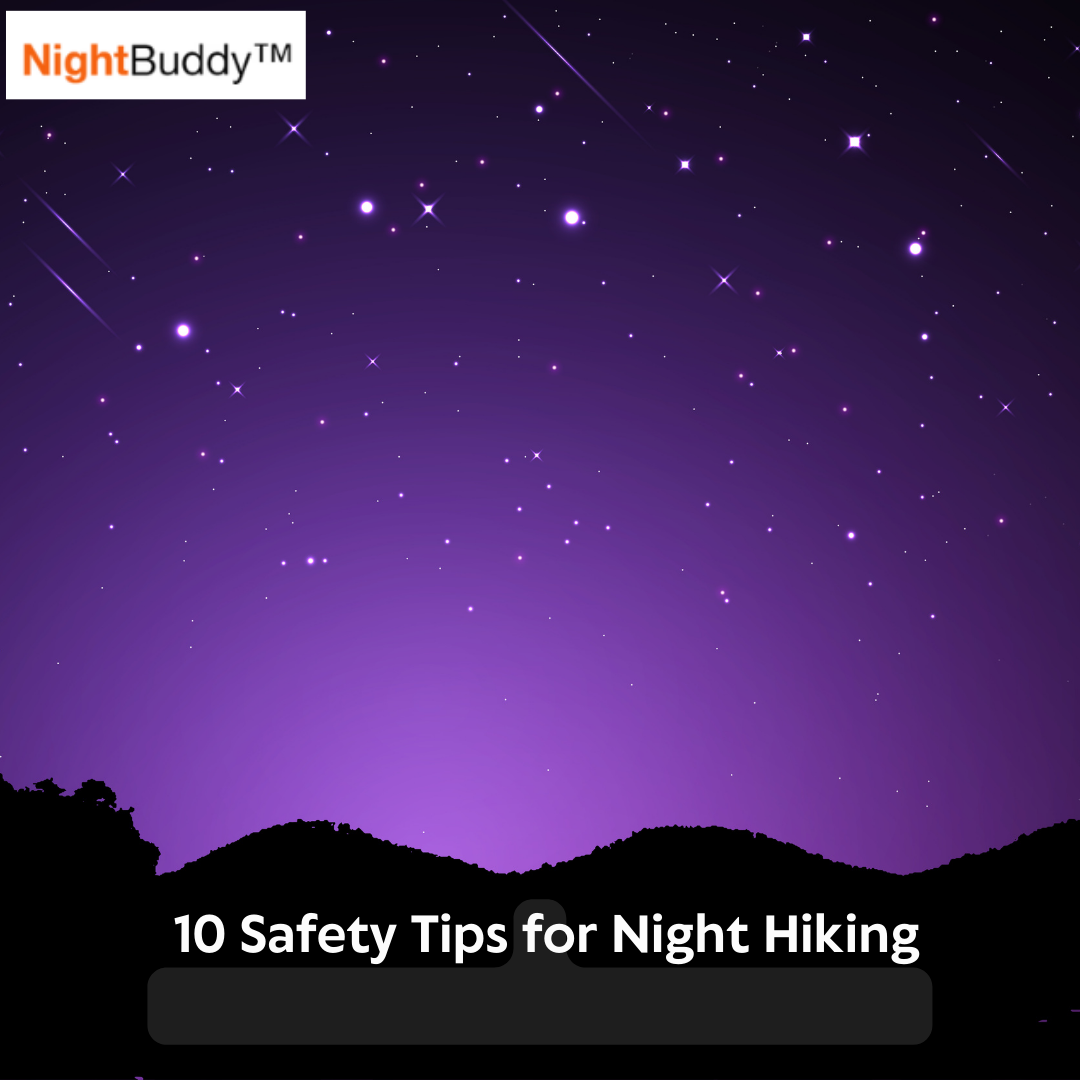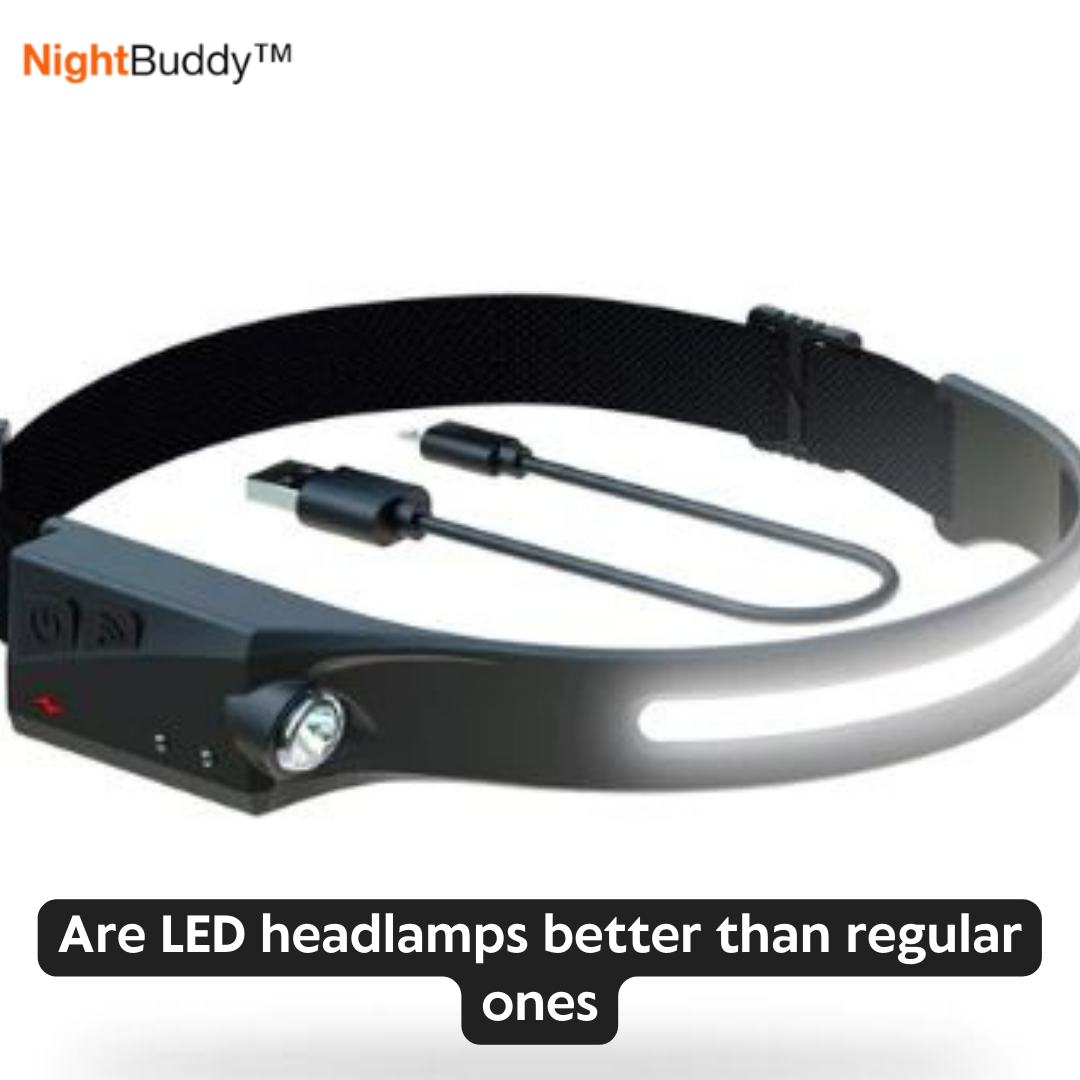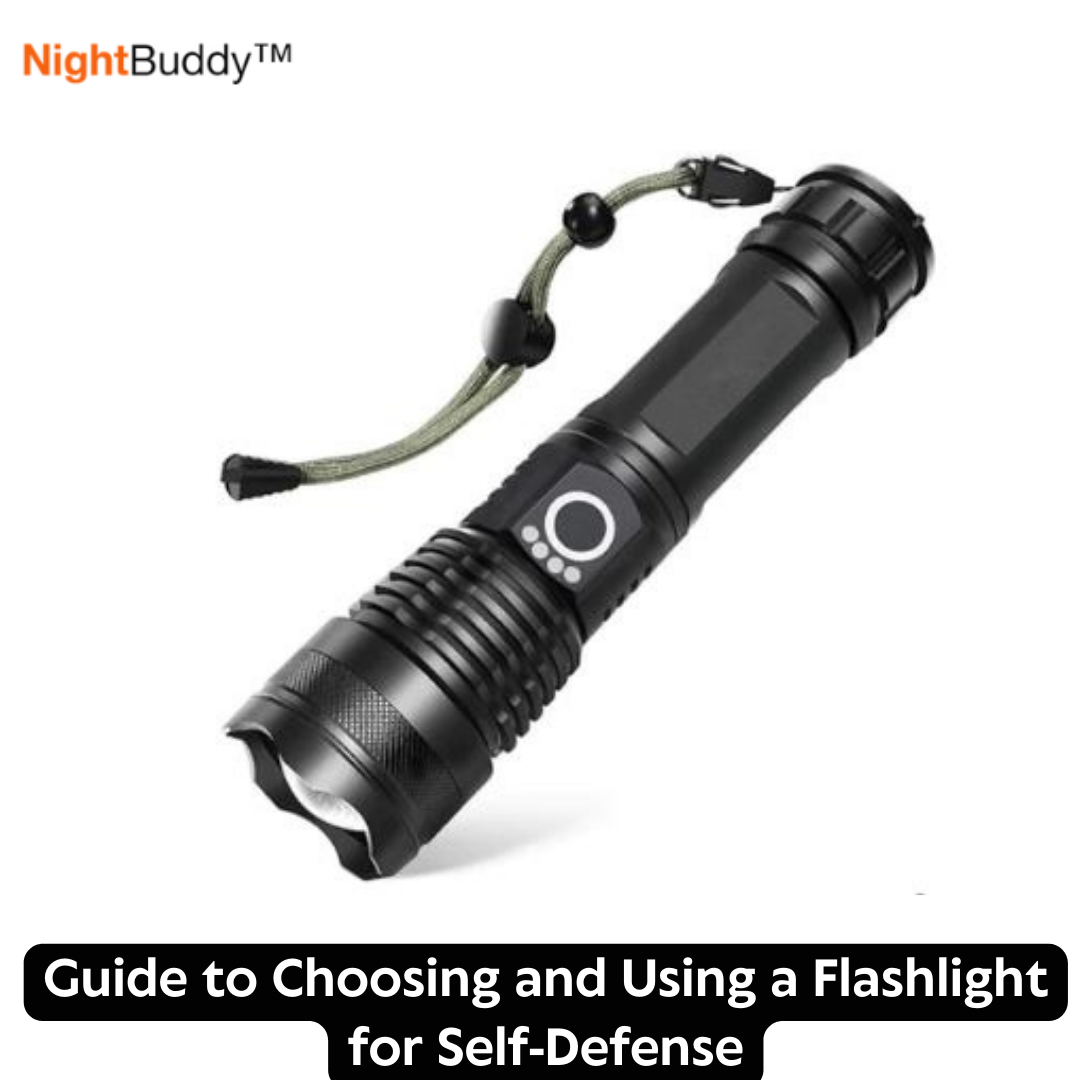However, with the thrill of nocturnal exploration comes the need for extra safety precautions. At Night Buddy, we are committed to making your nighttime activities as safe and enjoyable as possible.
Let’s dig into the Night Buddy headlamp to illuminate your path when hiking at night
#1 Choose the right headlamp for hiking

A dependable headlamp is crucial for night hiking. It's essential to have a bright, long-lasting, and comfortable headlamp tailored to your needs. Read our in-depth guide on how to choose a headlamp for helpful advice on picking the best one for you. Check out our selection of Night Buddy headlamps for a variety of options that will keep you safe and seen when you're out at night.
#2 Plan your route and share your itinerary
Planning your route beforehand is vital for a secure night hike. Research the trail, understand its difficulty, and familiarize yourself with significant landmarks.
Tell someone you trust about your hiking plans, including your route, when you think you'll be back, and who to call in case of an emergency.
#3 Dress appropriately and wear reflective gear
Wearing layered and moisture-wicking clothing will help you stay warm and dry during your hike. Additionally, wearing reflective gear will increase your visibility to others, enhancing your safety.
#4 Check the weather forecast
Always check the weather forecast before setting out. This will help you prepare for any sudden changes in temperature, precipitation, or other conditions that might impact your hike.
#5 Bring extra batteries and a backup light source
Even with the ideal Night Buddy headlamp, it's essential to have extra batteries and a backup light source, like a flashlight or another headlamp. This ensures you'll never be left in the dark.
#6 Hike with a companion or in a group
Hiking with others not only enhances your experience but also adds an extra layer of safety. In the event of an emergency, having someone else with you can make a significant difference. In groups you can organize a tent, and choose one our popular headlamps for camping.
#7 Know your limits
It's crucial to understand your physical capabilities and limitations. Night hiking can be more demanding and exhausting than daytime hiking, so be honest with yourself about your endurance and abilities.
#8 Stay on the trail
Staying on the trail is critical for both your safety and the environment. Trails are made so that you have as little effect on the environment as possible and stay away from potential dangers.
#9 Carry a fully charged mobile phone and a portable charger
In case of emergency, a fully charged mobile phone is essential. Additionally, carrying a portable charger ensures your phone stays powered throughout your hike.
#10 Bring a well-stocked first-aid kit
Accidents can happen, even on the best-planned hikes. We recommended you carry a first aid kit with;
- Bandages
- antiseptic wipes
- and pain relievers
So, you'll be ready for any small injuries or problems that may come up.
Final thoughts
A secure and enjoyable night hiking experience begins with preparation and the proper gear. Follow these top 10 safety tips, and don't forget to equip yourself with a reliable Night Buddy electric camping light for a bright and memorable adventure.
Frequently Asked Questions
What should I wear when hiking at night?
When night hiking, it's essential to dress in layers with moisture-wicking clothing to keep you warm and dry. Wearing reflective gear is also recommended to increase your visibility and ensure your safety.
What headlamp should I get for nighttime hiking?
Choose a headlamp that is powerful, pleasant to wear, and long-lasting. Moreover, things like battery life, light modes, and weather resistance should be taken into account. See our article on picking a headlamp for more advice.
What safety measures ought I to take before beginning a night walk?
Research the trail, map out your route, and tell someone you trust about it before starting a night walk. Moreover, make sure to check the weather forecast, dress accordingly, and carry a dependable headlamp as well as a backup light source.
What should I pack for a night walk in safety?
Bring a durable headlamp, extra batteries, a second source of light, a fully charged phone, a portable charger, a well-stocked first aid kit, and any essential food and water supplies for a risk-free night trip.





Leave a comment
This site is protected by hCaptcha and the hCaptcha Privacy Policy and Terms of Service apply.